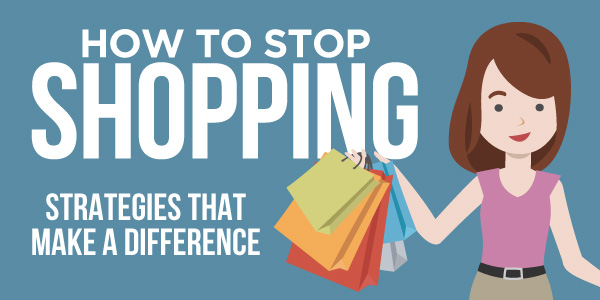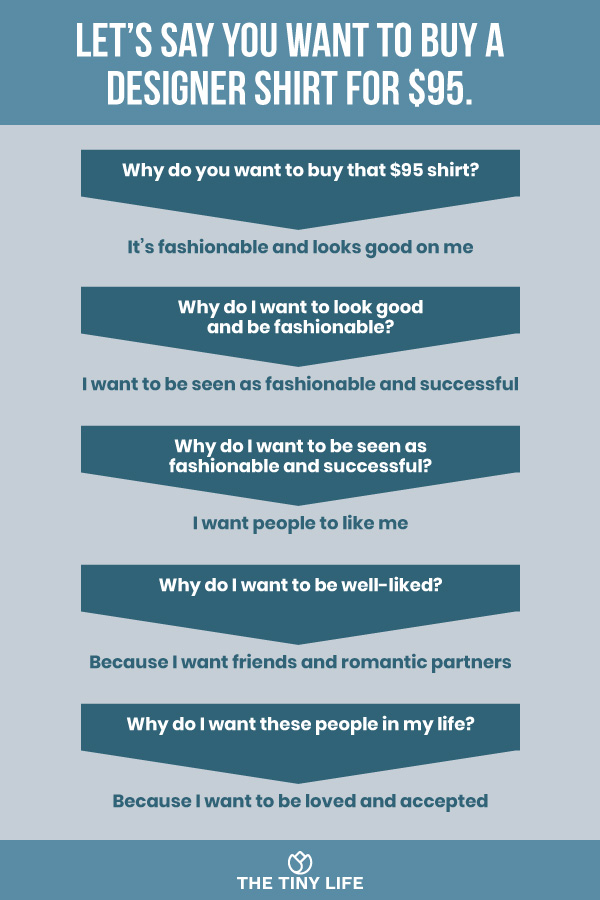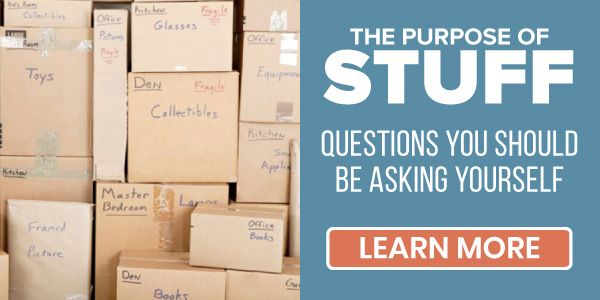 Humans are funny things, we may want to stop shopping, but when it actually comes to making it happen, we find ourselves back in the store or shopping online. The reasons are complicated, you may be shopping to deal with stress – a little retail therapy – you might find yourself among friends who shop socially, it could be a great deal or sale, or any number of other reasons.
Humans are funny things, we may want to stop shopping, but when it actually comes to making it happen, we find ourselves back in the store or shopping online. The reasons are complicated, you may be shopping to deal with stress – a little retail therapy – you might find yourself among friends who shop socially, it could be a great deal or sale, or any number of other reasons.
We have lots of reasons, but whatever yours happens to be, it led you here; searching for how to stop shopping. Let that sink in, if you find yourself here, it’s a problem and we need to fix it. The good news is, I have been where you are and escaped that cycle, even going on to not buying a single thing for an entire year!
How To Stop Shopping So Much

Before I get into my strategies to help you stop shopping, let’s take a minute to focus on what the outcomes of shopping too much or even a shopping addiction could mean. This helped me a lot when I started my minimalism journey. Think about made you want to figure out how to stop shopping so much. What was that feeling or driver?
Next, I’m going to ask you to do something you don’t want to do. I want you to sit here for a moment and let the dread, the uncomfortableness, the emotions consume you. Notice how it makes you feel, the thoughts that spiral from it. I want you to feel the dread, the anxiety, the shame, and stress that comes from shopping too much.
The reason for this? Sometimes the best way to change a behavior is to think about what it would be like to have a healthy relationship with shopping. But if it was that simple, you’d just do that. Instead, I find sometimes it can be more effective to run from something, rather than towards something. There is something in our DNA rooted in our flight or fight response that makes this true. Unchecked it can be a destructive force, used as a tool, it can propel us forward.
How To Take Control Of Your Shopping Habit

When you feel the temptation to buy more stuff, I want to you remind yourself of that feeling. When you’re feeling tempted while out with friends, when you feel stressed, when you start to justify a purchase, I want you to let that feeling overcome you as a reminder of what you’re moving away from. This will start to make saying no to buying something a relief rather than a challenge.
Now to the strategies that help me break away from the consumer cycle and stop shopping needlessly.
Say “next time”

This was a really big hack for me when I was trying to stop shopping. I set a rule that if I saw something that I wanted to buy that wasn’t on my shopping list I wrote at home, I’d tell myself “next time I’m in this store, if I still want it, I’ll buy it then”.
This stemmed the flow of impulse buys majorly. It works so well because you’re not even telling yourself “No” just “not right now.” The funny thing is often when I saw the item again, I often found myself wondering why I wanted it in the first place.
You can do this with online shopping too. If you’re trying to stop shopping on Amazon, they have a “save for later” button. I do this for every purchase I make online now as a habit unless I am replacing something that was broken/worn out.
Remove The Triggers That Lead You To Shopping

Think about what are the thoughts, situations, and triggers that lead to shopping? It could be that we shop because we find ourselves at the mall with friends. What if instead, we proposed going to the park on a nice day. What if instead of spending $20 on a new top, we went to a wine bar and got a bottle with the same friends.
Do you shop when you’re stressed or bored? What could be an alternative response?
The point is that when we shop too much, it’s way easier to stop the circumstance that proceeds us being at the store than to not buy when we are already at the store. Identifying the steps that lead us to shop makes us aware and thus more intentional. Recognizing the triggers is half the battle.
Ask Why To Stop Shopping So Much

When you’re considering buying something, take a second and ask yourself the five whys? This technique is from the engineering geniuses at Toyota, but can work wonders in everyday life too. When you want to buy something, ask yourself “why do I want to buy this?”
In your mind I want you to answer this question, then consider the answer. Take the answer and ask yourself, why is that the answer? Then keep on repeating. What you’re doing is digging deeper to the root cause of why you’re buying this item. When you get to the end and you feel you can’t break down the answer anymore (could be 3 “whys” or 7 “whys”) then think about that final answer. Does that final answer make sense with the purchase you’re about to make?
It’s easier to see in an example:

So, when we look at the above, we see how we took buying a shirt and distilled it down to “I want to be loved and accepted.” This then lets us compare the action we are taking (buying a shirt) to the TRUE desired outcome (love and acceptance). We then can ask does that action result in the outcome, in this instance we most likely would say “no”.
At that point we have also learned something about ourselves, we can then ask, “what could I do that would get me closer to my desired outcome”. This one-two punch will let you stop your buying habit and build a new one that’s positive.
Reframe The Cost Of Purchases

One of the most impactful things for me was reframing the cost of items. Let’s say you make $20 an hour and the item you are considering is $160. Ask yourself, “is this item worth me working an entire day for?” This helped me greatly and really oriented me in the right direction. This is also really helpful when you are trying to get out of debt.
Add Pain To The Process

You’ll read many tips about how to stop spending money on things, but at the root, many of these will fail. Why? Because buying isn’t a painful enough process. Remember how I coached you at the very beginning of this post to sit with the dread of your shopping habit? I wanted to steep shopping with a healthy dose of pain.
Whenever I want to change something about my life and it proves to be stubborn to overcome. I recognize my lack of progress and ask myself “how can I make this MORE painful?” It’s an odd notion, but it totally works.
One personal example was me kicking drinking sodas. Instead of saying I couldn’t drink sodas, I just said I couldn’t buy at the grocery store and keep them at home. If I wanted a soda, I had to get in the car, drive to the gas station 2 miles down the road and buy a single soda. Guess what, every time I wanted a soda, I instantly weighed in my mind if it was worth all that hassle.
So, whatever it is for you when it comes to learning how to stop shopping, ask yourself, “how can I add more pain to this?”
Your Turn!
- What tricks have you used to stop shopping?

I throw away catalogs immediately when they arrive in my mail. Don’t even open them!!
Ryan, well written! When we “let love and acceptance” guide us to shop, what we tell ourselves is our worth is linked to what we possess. Carried further then, should what we acquired be taken from us, then by extension, we have no worth.
Obviously, this causes no shortage of “justification” for the endless accumulation of clutter. Am reminded of a relative that collected seemingly set after set of frightfully expensive fine China. Upon her passing, her kids, having no appreciation thereof, sold it all at an estate sale for pennies on the dollar.
I find that being broke is a really great reason not to shop! (This situation comes and goes.) When I’m not broke, I think about having space in my house, and having money to give to people who need it more than I do, whether that be my church, a charity, or even my own kids. And when the money is not a big issue at all (again, a situation that comes and goes), I try to think about enjoying experiences instead of things — nicer dinners out, trips to spend time with friends and family, educational enrichment… All better than “stuff” for stuff’s sake.
We apply the 5-year rule: will we be better off in 5 years by buying this? This same question could be re-phrased as 1) “will I still HAVE this item in 5 years; or 2) will I WANT this same item in 5 years. ;-P